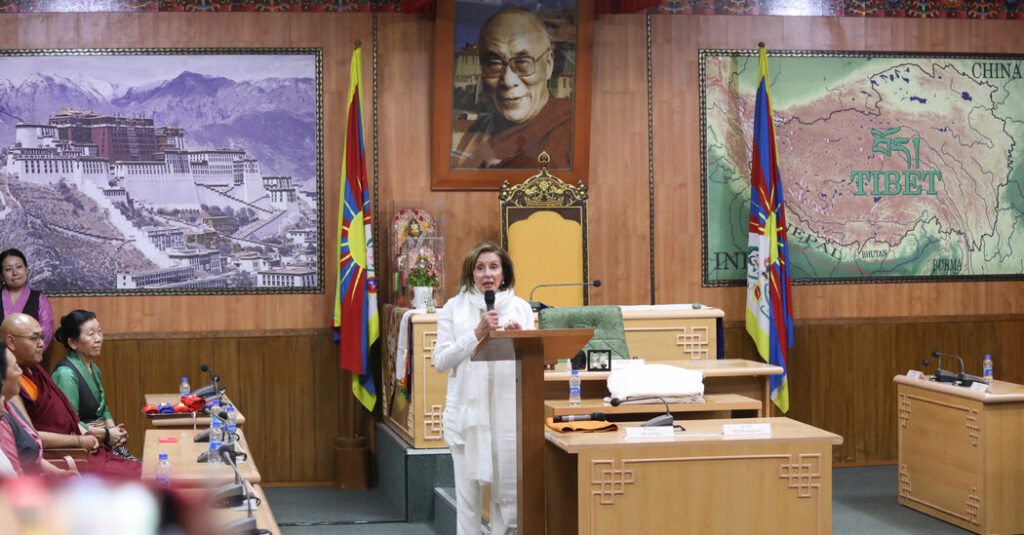A senior U.S. congressional delegation, including former House Speaker Nancy Pelosi, met with the Dalai Lama at his Indian residence on Wednesday, a visit that was previously condemned by China, which considers the exiled Tibetan spiritual leaders are separatists.
A delegation led by Michael McCaul, the Republican chairman of the House Foreign Affairs Committee, arrived on Tuesday in the Himalayan town of Dharamshala, where the Dalai Lama has lived since the 1960s. The delegation visited the offices of the Tibetan government-in-exile, which is pushing for Tibetan autonomy within China.
The visit comes days after Congress passed a bill with bipartisan support urging China to begin dialogue with Tibetan leaders to find a solution to the long-running conflict.
Not surprisingly, China immediately criticized the visit. Its leaders consider the government-in-exile to be illegitimate and view any support for the cause of Tibetan autonomy, as they call it, as interference in China’s internal affairs.
“We urge the United States to fully recognize the anti-China and separatist nature of the Dalai Lama group, abide by its commitments to China on Tibet-related issues, and stop sending wrong signals to the world,” Delhi said in a statement on Tuesday night.
U.S. officials meet regularly with the 88-year-old Dalai Lama.
The contentious visit has raised concerns within the Biden administration that already icy relations with Beijing are further deteriorating, leading to a strong response from China, including imposing trade restrictions on Taiwan and holding military drills near the island.
The visit to India also comes as Washington and New Delhi deepen ties, in part because they believe China faces a common threat. President Joe Biden’s national security adviser Jake Sullivan is in New Delhi this week for several rounds of talks with Indian officials on expanding defense and technology cooperation.
The widespread discussions, weeks after Indian Prime Minister Narendra Modi won a third term in office, illustrate how seriously Washington takes its relationship with India, with U.S. officials increasingly viewing New Delhi as a counterweight to Beijing.
Tenzin Lekshay, spokesman for the government-in-exile Central Tibetan Administration, said the situation in Tibet should not be viewed “through the lens of growing competition between the United States and China” but should instead serve as a reminder of life in Tibet The way “how”.
“We do hope that the leaders of the free world will support the Tibetan cause and, in particular, emphasize that China’s leaders will restart dialogue to resolve the Sino-Tibetan conflict,” Mr. Lexie said.

